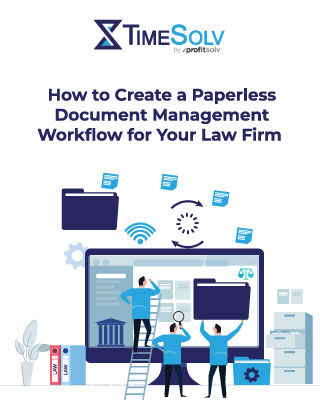For hackers, law firms represent a gold mine of sensitive data, from confidential case files to personal client information like Social Security numbers and bank account details. In such a high-stakes environment, protecting your clients’ data has now become a non-negotiable for legal practitioners who want to keep their practice afloat.
A single breach can lead to millions of dollars in penalties, irreparable damage to client trust, and even disbarment. Today, secure file sharing for law firms is critical to safeguarding sensitive information and maintaining compliance, all while staying ahead in the digital age.
Why Does Security Matter in Legal File Sharing?
A data breach happens when unauthorized parties gain access to sensitive information and compromise its security. In a law firm, data breaches can stem from various sources, such as lost or stolen devices, cyberattacks, and accidental disclosure of sensitive client information.
With how rampant cyberattacks are in the legal sector (with United States-based defense contractors even bearing the brunt of the demand), it seems that more and more hackers are finding all types of confidential law firm data just fascinating. The following is information commonly targeted in cases of law firm data breaches.
- Details about mergers and acquisitions
- Attorney-client privileged information about cases
- Litigation strategies
- Social security numbers
- Driver’s license numbers
- Credit card numbers
- Bank account information
- Street addresses
- Personal telephone numbers
Using a secure portal for sharing documents can help address the growing risk of data breaches in the legal sector. Aside from the evident purpose of defending your own against cybercriminals, safe legal file sharing also allows you to reap several other benefits, detailed below:
Staying compliant with legal and ethical standards
While data breaches are a serious concern in any industry, they carry larger consequences for law firms due to lawyers’ ethical responsibility to protect client confidentiality. ABA Rule 1.6 directs attorneys to take every reasonable step to protect attorney-client privilege, and Formal Opinion 477 encourages the use of encryption to do so.
Even if an attorney’s office compromises a client’s personally identifiable information by accident rather than negligence, reprimands and revoked licenses are an imminent threat. These obligations make robust data security measures not just a best practice, but an absolute necessity.
Protecting client trust
A breach of confidential client information won’t just leave you with dissatisfied clients. You can expect them to take action on grounds of negligence, which can largely affect your overall reputation as a legal practitioner.
A secure attorney file-sharing platform can save you from the trouble of losing clients and even your practice altogether. With the right tool in your arsenal, sensitive client and case data remains confidential, allowing you to retain clients for long-term business relationships.
Maintaining business continuity
Data breaches can easily disrupt business operations and will likely result in significant financial and reputational losses if your firm ever gets targeted by cybercriminals.
Using trusted law firm file-sharing tools can help protect your firm’s ability to operate smoothly and continue delivering value to clients without any risk of cyberattacks.
3 Law Firm File-Sharing Methods to Consider
Depending on your preferences for file sharing, there is some flexibility when it comes to upholding your legal and ethical data security obligations. Communicating with clients via secure portals for sharing documents, sending encrypted email attachments, or sending files through an established file-sharing platform are all acceptable options you can consider.
Like in all matters, though, each approach has pros and cons. To help you decide on a legal file-sharing strategy, we’ve outlined the basics of the most common methods:
Method 1: Secure Client Portal for Document Sharing
The number-one use of client portals is legal file-sharing, but they’re also a digital “one-stop shop” for other critical interactions between attorneys and clients. This comprehensive method of communication does much more than protect client confidentiality.
Pros:
- Client portals provide a centralized hub for communication and file exchange, saving attorneys time digging through email threads for pictures, phone numbers, and questions.
- They also allow clients to upload photographic or video evidence, view case progress, and process invoice payments safely.
- Using a secure client portal for sharing documents reduces the risk of sensitive files being lost or intercepted.
Cons:
- Portals require clients to set up their own accounts and log in with every use, which may be inconvenient for technology-challenged folks.
- Some clients may need assistance navigating the platform, leaving attorneys to act as tech support to help clients access their documents.
How to Create a Paperless Document Management Workflow for Your Law Firm
To provide your clients with the best value possible, consider setting up paperless
document management workflows.
Don’t know where to start? Consider this your step-by-step map to creating a more efficient, eco-friendly law firm.
Download our free guide to create a paperless document management workflow for your law firm today!
Method 2: File-sharing via Email Attachments
As a familiar tool that most people already use regularly, email is primed for legal file sharing. The key is that extra measures must be taken to do so without jeopardizing data security.
Pros:
- Email is a familiar tool that most people already use regularly, requiring no special software or steep learning curves.
- Modern file-sharing platforms offer features like encryption, password protection, and expiration dates for email attachments, reducing security risks associated with traditional emails.
- Law firm file sharing via encrypted email attachments can also speed up legal workflows because access to important files is nearly instant — without compromising client confidentiality or data security.
Cons:
- Clients may send personal details or sensitive documents attached as standard, unencrypted attachments.
- Clients might not recognize safe links as safe.
- Some clients infrequently check their email, turning important emails into the proverbial needle in a haystack within pages of spam and marketing newsletters.
Method 3: File-Sharing Platforms
File-sharing platforms such as LexShare provide dedicated, professional tools for securely exchanging sensitive legal documents. These platforms are designed to handle large files and offer a range of advanced security features.
Pros:
- They allow for large file transfers that might be impossible to share via email or client portals.
- The interface is designed for optimal user experience, which helps present the law firm as security-conscious and tech-savvy.
- Platforms let law firms specify user permissions, so that only authorized individuals can access sensitive files.
Cons:
- While file-sharing platforms may be intuitive for some, clients unfamiliar with them may require extra guidance.
- Many platforms involve ongoing subscription fees, and might mean that the firm has to rely on an external vendor for security updates, server uptime, and support.
Which Is Best for Legal File Sharing?
When it comes to secure file sharing for law firms, client portals and file-sharing platforms are your most reliable options. Both methods provide remarkable protection against cyber threats and enable attorneys to meet obligations on all fronts. Although email attachments may seem convenient and familiar to clients, they come with significant risks that make them less advisable for professional use.
For one, if a recipient mistakenly forwards or mishandles the message, sensitive data can be exposed. Many clients are also unfamiliar with encryption protocols, which can lead to errors, such as responding to emails with unprotected attachments or failing to recognize the importance of expiration links.
Client portals function as all-in-one communication hubs. For firms focused on creating a seamless client experience and maintaining efficient data protection, client portals are often the better choice. They are a long-term solution that can potentially minimize risks while fostering stronger client involvement.
Secure file-sharing platforms for law firms, on the other hand, offer just as much flexibility and scalability, particularly for transferring large files or accommodating clients who prefer a simpler interface. These platforms are your best bet in scenarios requiring quick, straightforward exchanges of sensitive documents without the need for complex workflows.
However, combining client portals with file-sharing platforms can provide the perfect balance. A hybrid approach integrating these two approaches can allow law firms to cater to a wider range of client needs and ensure sensitive information remains well-protected, all at once.
Take Your File Sharing to the Next Level with TimeSolv
For a modern legal practice, the investment in client portals or secure file sharing for law firms is a crucial step toward maintaining professional standards and ethical compliance.
TimeSolv provides the tools you need to meet today’s security demands while simplifying client interactions. With our client portal capabilities and seamless integration with LexShare, TimeSolv empowers law firms to share sensitive documents safely and with minimal hassle for clients.
Whether your focus is on streamlining workflows, meeting compliance requirements, or building client trust, TimeSolv has you covered. Take the first step toward a more secure, efficient law firm. Contact us today to schedule a demo or start your free trial.
How to Create a Paperless Document Management Workflow for Your Law Firm
To provide your clients with the best value possible, consider setting up paperless
document management workflows.
Don’t know where to start? Consider this your step-by-step map to creating a more efficient, eco-friendly law firm.
Download our free guide to create a paperless document management workflow for your law firm today!














